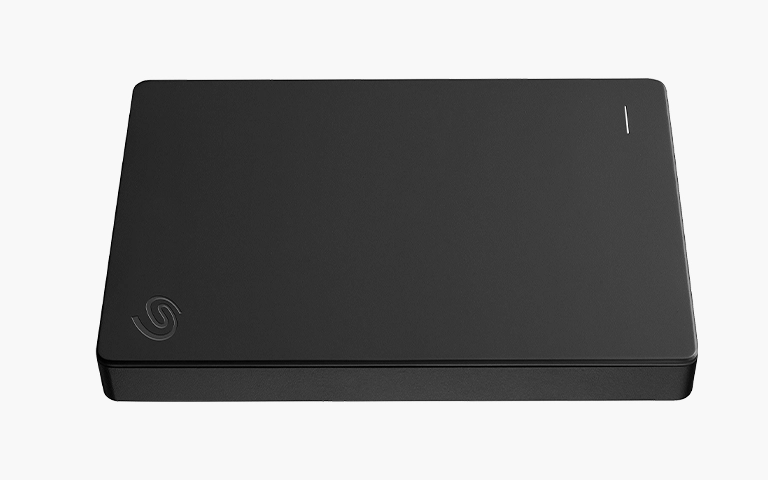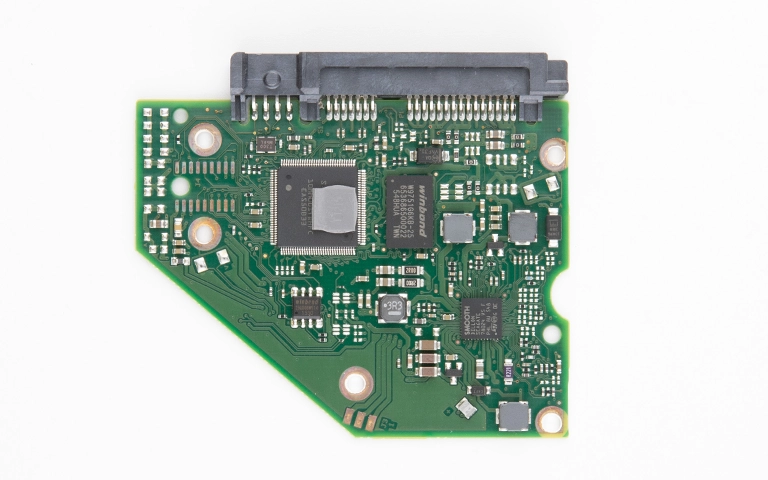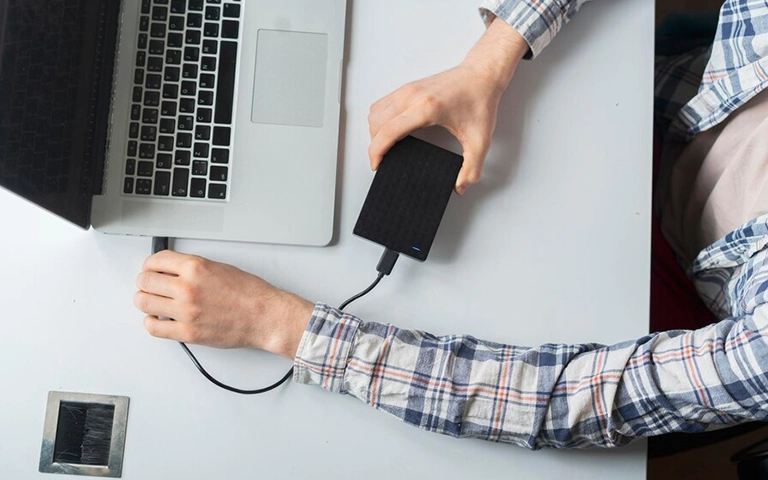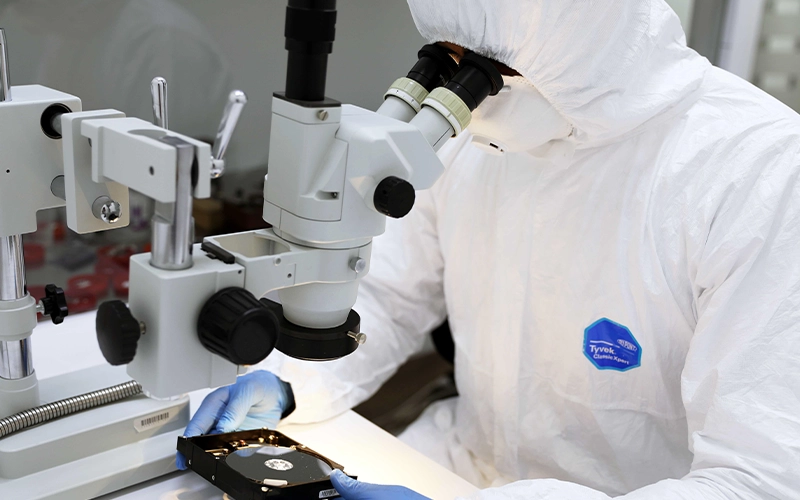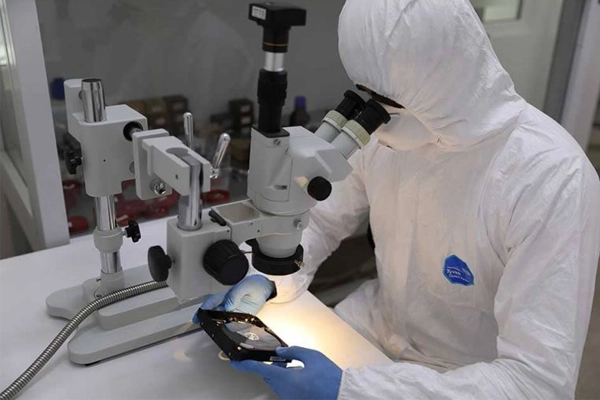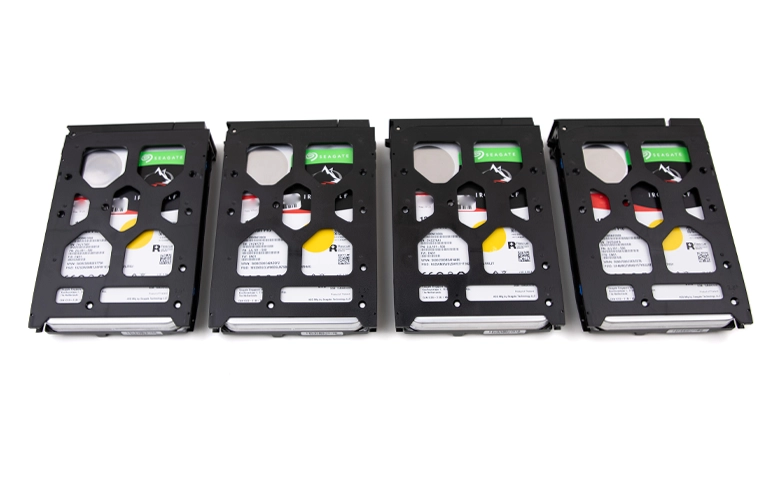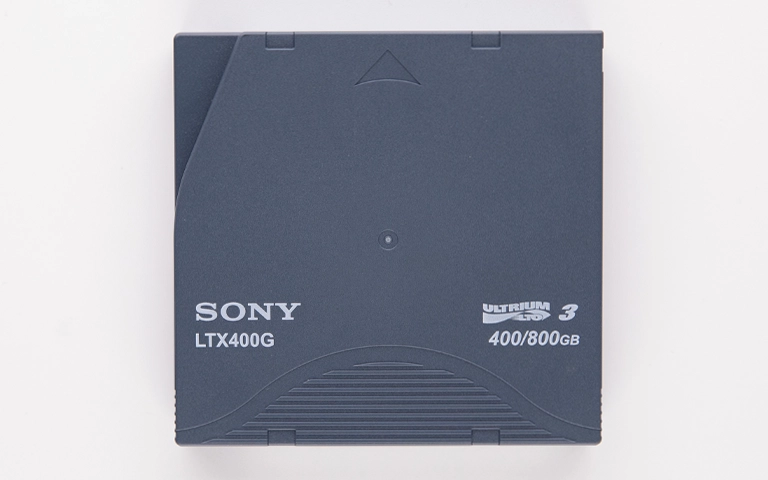Power surges, sudden electrical voltage spikes, can severely damage sensitive electronics, with external hard drives being particularly vulnerable. If an external hard drive power surge (from thunderstorms, grid issues, faulty outlets) causes your drive to stop working, become unrecognized, or appear dead, the surge is likely the culprit, jeopardizing data access.
Understanding how a power surge damages an external drive is key to realizing why standard troubleshooting fails and specialized data recovery is necessary. Attempting to use a drive after a surge can cause further damage. This guide explains typical surge effects and outlines professional recovery.
What is a Power Surge and How Does It Affect Electronics?
A power surge is a significant increase in voltage above the standard level flowing through electrical wiring. While designed for a specific voltage, electronic components inside devices like external hard drives are extremely sensitive to these sudden over-voltage conditions.
When a surge occurs, the excess voltage can overload and destroy these components, essentially “frying” them. This damage often happens instantly and can affect multiple parts of the device simultaneously.
How Does a Power Surge Damage an External Hard Drive?
A power surge typically damages an external hard drive by destroying the external enclosure’s power adapter or internal bridge board first. If the surge bypasses these, it can fry components on the internal drive’s Printed Circuit Board (PCB), like TVS diodes or controller chips, often rendering the drive dead or unrecognized.
Components Typically Damaged by Power Surges in External Hard Drives
A power surge affecting an external hard drive doesn’t always damage the components equally. The path the excess voltage takes determines the primary points of failure. Based on professional data recovery experience, the damage often occurs in these areas:
External Enclosure's Power Adapter / Bridge Board
- What it is: The external power brick (for desktop drives) or the small circuit board inside the enclosure that converts the USB/Thunderbolt connection to the internal drive’s interface (SATA/NVMe) and handles power distribution from the USB port or external adapter.
- How it’s Damaged: This is often the first line of defense and frequently absorbs the brunt of the surge coming from the wall outlet or the computer’s USB port. Components on this board, including voltage regulation circuits or the bridge chip itself, can be destroyed.
- Result: The drive may receive no power at all, or the connection to the computer might fail even if the internal drive is okay.
Internal Hard Drive's Printed Circuit Board (PCB)
- What it is: The main circuit board attached directly to the internal HDD or SSD mechanism. It controls the drive’s motor (for HDDs), communicates with the heads/NAND, and manages power internally.
- How it’s Damaged: If the surge bypasses or overwhelms the enclosure’s protection, it can damage components on the drive’s own PCB. A common point of failure is the TVS diode, a component designed to sacrifice itself to absorb voltage spikes. A blown TVS diode often prevents the drive from powering on. Other controller chips or power components can also fail.
- Result: The drive typically appears dead – it won’t spin up (HDD) or be detected by the computer, even if removed from the external enclosure. This is a very common outcome requiring dead hard drive recovery techniques.
Read/Write Heads (Less Common, but Possible)
- What they are: The delicate components inside HDDs that read and write data to the magnetic platters.
- How they’re Damaged: In some severe surge events, or if the PCB failure causes incorrect voltages to reach the internal components, the sensitive pre-amplifier circuitry located on the read/write head assembly itself can be damaged.
- Result: The drive might power on and spin, but immediately start clicking because the heads cannot read data correctly or initialize. This requires cleanroom intervention.
Get a Free Consultation.
Our recovery experts are ready to assess your device and guide you through the safest path to recovery. Fill out the form to get started.
"*" indicates required fields
Critical Actions After a Suspected Power Surge
If you suspect a power surge affected your external drive and it malfunctions:
-
Disconnect Immediately: Unplug the drive from the computer and power outlet.
-
DO NOT Plug It Back In: Powering on damaged components risks further electrical shorts and damage to surviving parts (platters, NAND).
-
DO NOT Try a Different Enclosure (Initially): If the internal drive PCB is damaged, a new enclosure won’t help and risks further damage if powered. Diagnosis first.
-
Software is Useless: Cannot diagnose/repair damaged electronics. The drive needs hardware-level functionality for software access.

DIY Recovery
Risks permanent data loss
Let the Specialists Handle It
DIY attempts often result in permanent data loss. Our certified recovery specialists use advanced tools in controlled environments for the highest success rate.
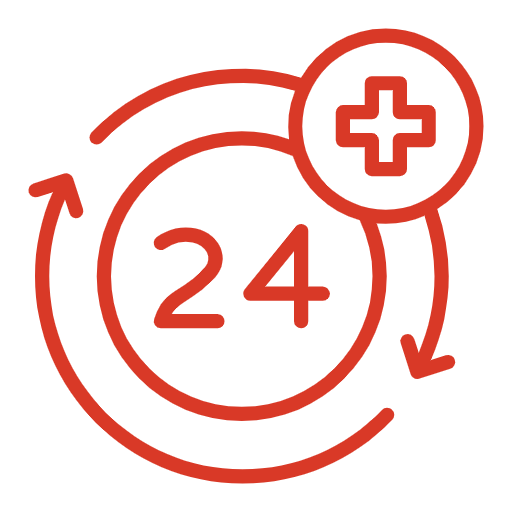
24/7 Emergency Service
Professional Data Recovery
Recovering data from a power surge-damaged external hard drive requires diagnosing and bypassing the damaged hardware components. This is exclusively the domain of professional data recovery services.
The Recovery Process Typically Involves:
- Damage Assessment: Technicians perform electronic testing on the external enclosure’s board and the internal drive’s PCB to identify failed components (e.g., blown TVS diodes, damaged controllers).
- PCB Repair or Replacement:
- Simple component replacement (like a TVS diode) might be possible.
- If the PCB is severely damaged, a compatible donor PCB is sourced. Crucially, a specific ROM/NVRAM chip containing unique drive calibration data must be carefully transferred from the original damaged board to the donor board using micro-soldering techniques. Without this transfer, the drive will not function correctly with the new PCB.
- Cleanroom Work (If Heads Affected): If diagnosis indicates damage to the internal read/write heads (e.g., drive clicks after PCB repair), the drive must be opened in a certified cleanroom for head assembly replacement.
- Firmware Repair (If Needed): Sometimes surges can corrupt the drive’s internal firmware, requiring specialized tools to repair service area modules after electronic issues are resolved.
- Drive Imaging: Once the drive is temporarily functional, data is immediately cloned onto stable media using hardware imagers.
- Data Extraction: Files are rebuilt and extracted from the clone.
These steps are part of our comprehensive data recovery process.
Industry-Leading 99% Success Rate
Power surges can cause complex electronic damage to external hard drives. PITS Data Recovery has the diagnostic tools, component-level repair expertise, and cleanroom facilities necessary to address surge-related failures.
Recommended Actions for Your Surge-Affected Drive
- Keep it Unplugged: Do not attempt to power it on again.
- Note the Circumstances: Recall when the surge likely occurred and the symptoms the drive exhibited immediately after.
- Identify the Drive: Note the brand (Seagate, WD, etc.) and model number if possible.
- Contact PITS Data Recovery: Explain that you suspect power surge damage. This information helps us anticipate the likely failure points during evaluation.
Your Data Security Is Our Priority
Data privacy isn’t optional. It’s our commitment. Our secure recovery process ensures your sensitive information stays protected from start to finish.
HIPAA Compliant
GDPR Compliant
Secure Facility
NDA Available
Trust in certified security. Start your recovery today! Call Now: 888.611.0737
Conclusion: Expert Handling Needed for Power Surge Recovery
Power surges seriously threaten external hard drive electronics, often damaging enclosure adapters, internal PCBs, or heads. When your drive stops working after a surge, powering it on or standard troubleshooting risks further damage and permanent data loss.
Successful power surge hard drive recovery relies on professional diagnosis and specialized hardware repair (component replacement, ROM transfers, cleanroom procedures). PITS Data Recovery has expertise and facilities for these complex electronic failures. If you suspect a power surge damaged your external hard drive, contact us for safe, professional evaluation.

